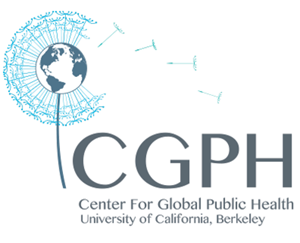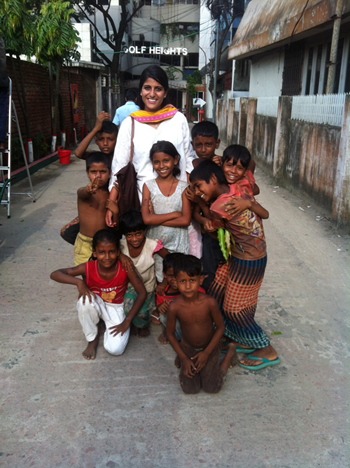Center for Global Public Health

The Challenge
Much of the developing world lives in poverty and with poverty comes global public health risks. Preventable diseases such a tuberculosis, malaria, HIV/AIDS, and diarrheal disease kill millions of people every year, with women and children most at-risk. Healthinequity perpetuates mortality and the burden of disease. Addressing the challenge requires research and action across disciplines with a focus on population health, with widespread implications for world economies, international development, commerce, and government policy making.
Our Mission
 The Center for Global Public Health (CGPH) provides transdisciplinary, experiential research, training, and learning opportunities for students and faculty to improve human health worldwide. We focus on the most vulnerable populations and communities with the greatest health inequities. Our goal is to be a platform to translate global health research into solutions for public health action at Berkeley and beyond.
The Center for Global Public Health (CGPH) provides transdisciplinary, experiential research, training, and learning opportunities for students and faculty to improve human health worldwide. We focus on the most vulnerable populations and communities with the greatest health inequities. Our goal is to be a platform to translate global health research into solutions for public health action at Berkeley and beyond.
History
What We Do
Research
CGPH aims to provide a platform to:
- Discuss, develop, and cohere cutting-edge, impactful global health research being conducted by CGPH core and affiliated faculty
- Link research, divisions, centers, and projects at Berkeley to approach global public health from a transdisciplinary perspective
- Support international collaborations to facilitate evidence-based implementation designs that deliver measurable public health impact for middle- and low-income countries
Education
CGPH seeks to train and cultivate the next generation of researchers and leaders in global public health through:
- Fellowship and exchange opportunities
- Symposiums, seminars, and other research events
- Supporting courses taught by CGPH affiliated faculty
- Promoting new global public health programs at Berkeley
Programs
We organize and sponsor events and projects that are throughout the year on special research areas. Main areas of programming include:
- Global Health Innovation and Technology
- Slum & Urban Health
- Global Adolescent Health
- Global Health Equity
- Children Nutrition & Oral Health
- Global Health Reporting
Advocacy and Outreach Events
Through our activities, we seek to:
- Provide resources to inform and educate the media, government, multi-lateral agencies, the general public and private sector donors about global health issues and solutions
- Cultivate innovative outreach and advocacy initiatives and events between Berkeley student groups, local community, and beyond
- Generate discussion and connect different “silos” to talk about solutions to global public health challenges
History
The Center for Global Public Health at the University of California, Berkeley was launched in 2008 by a core group of faculty at the Berkeley School of Public Health as a nexus to connect and engage diverse departments and research units towards translating globalhealth research into public health action. We draw from a diverse faculty from Berkeley, especially the School of Public Health, who have dedicated their lives towards teaching and researching for global public health. Funded by the Vice Chancellor’s office and with additional support from various grants and individual donors, CGPH partners with the Centers for Emerging and Neglected Diseases (CEND) under the Berkeley Alliance for Global Health which brings together more than 80 faculty members from 12 schools and colleges.
